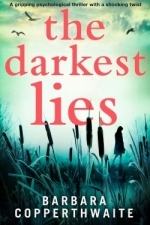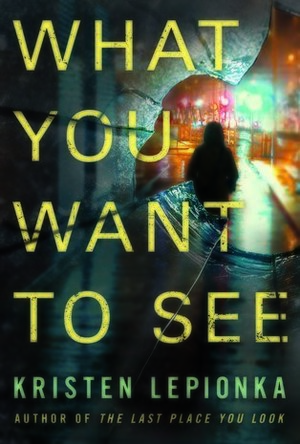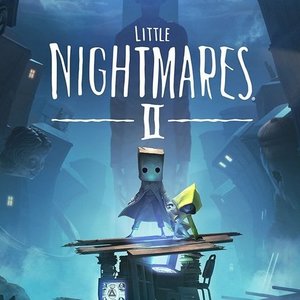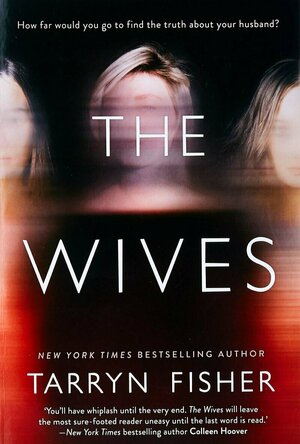Jamie (131 KP) rated The Darkest Lies in Books
Jul 26, 2017
I’m going to come right out and say that this book was frustrating for me. The synopsis really caught my eye and the idea for the plot is intriguing. Unfortunately, issues with the protagonist as well as a shaky and highly predictable plot made for a mediocre experience.
The narration in this book was a little bit weird and I had a hard time getting used to it. It is primarily told using first person point of view though switches regularly to second person as Melanie speaks directly to Beth in her inner monologue. It was just uncomfortable to read.
What’s so bad about first person point of view? See the issue for me with first person narration is that it’s easy to end up alienating readers if it’s difficult to relate to the narrator, and boy did I dislike Melanie. To be blunt, she was really annoying. She was self-centered, mean-spirited, often blinded by her own hubris, and near the end has a bit of a messiah complex going which I found completely ridiculous. She was constantly complaining about the police’s incompetence, throwing herself in the way of the investigation despite being asked multiple times to back off before she could destroy their leads. “I couldn’t go home. I was too furious, too desperate to prove I was right and the police were wrong.”
I get it, she’s consumed with guilt and grief over what happened to her daughter, over not being able to protect her. Desperate people tend to lash out and do stupid things, but I just couldn’t believe anyone would be so foolish. Melanie’s antics do lead up to something important in the plot, but honestly she didn’t need any help making a fool of herself. Before all the crazy came out she was constantly breaking down every female character she encountered, often focusing in on their looks and finding ways to insult them. Neighbors, police officers working on the case, teenagers, it didn’t matter. There are numerous examples of Melanie exhibiting this jealous personality throughout the course of the book.
She spends more time going on drunken rampages pointing fingers at everyone in town, harassing the police, treating her husband like garbage while emotionally cheating with a friend, and avoiding actually seeing and being there for her daughter. While her awful actions over the course of the book is an important aspect of the plot, I just couldn’t justify it because she never learns and remains stubborn even after being told off multiple times. Add on top how stereotypically reckless she acts at the end instead of seeking help from the police because of course she doesn’t need them and I just couldn’t dig the story.
I liked the central idea around the dangers of teens sneaking out and trusting strangers, but the story meandered so much it kind of gets lost in Melanie’s mental collapse and crazed search for the culprit. The plot attempts to use some misdirection to keep the reader guessing but the construction was just sloppy, and the actual culprit isn’t even the character that Melanie cares about the most. Every “bad” character is so blatantly obvious that the advertised twist is really easy to see. I kept on reading because I wanted to know the how and the why. I think there was potential here, and if the author wanted to stick to the narrative that Mel is actually really nice and is just being manipulated then why does she remain every bit as petty and controlling? She is still unable to see past her own emotions and unable to learn from her mistakes. I wished that this could’ve ended with more character growth for the main character.
Kristy H (1252 KP) rated What You Want To See (Roxane Weary #2) in Books
May 10, 2018
I loved this book. I love the first person aspect. The Roxane Weary series is straight-up great mystery writing. No unreliable narrator, no chapters that alternate POV or time periods, no gimmicks--just an excellent protagonist and a strong plot. It makes you long for mysteries of old (think Kinsey Millhone). The ways I love Roxane cannot truly be enumerated--she's a female lead in a mystery series, for one. She's smart, witty, and sarcastic. She's bisexual, but this characteristic is just who she is, not her main defining element or the entire defining point of the novel. As a bisexual female, I cannot stress how amazing this is in literature. To have bisexual representation (and have that representation be intelligent, funny, and not portrayed as evil and deviant), well, it's wonderful. She has relationships of all kinds and works on figuring out herself, just like any other person. Gasp! Imagine that. I couldn't love Roxane more (or Kristen Lepionka for creating this character). Also, Roxane calls waffles "golden beauty" and well, what more do you need in your PI? She's the Leslie Knope of private investigators.
I was worried that the second Roxane Weary novel wouldn't stand up to the first, but I was anxious for no reason. The second book is just as wonderful and intricately crafted as the first, and we get to see Roxane both struggling and growing professionally and personally. The case is a great one--it had me frantically reading and totally shocked me at the end, which I love. So rarely can a detective novel keep me guessing to the anymore. Marin Strasser is quite the character, and her web of lies pulls in a whole host of supporting characters.
We also see Roxane navigating new territory with Tom, her former lover (and, as mentioned, her dad's ex-partner), and get appearances again from the appealing Weary brothers and Roxane's mom. Roxane is still working on her relationships--not just romantic ones, but life ones, and you'll be touched as she figures out trying to be a "surrogate aunt" to Shelby, who appeared in book one. Watching her let her guard down at times is enjoyable.
The case is still mainly the star, though, and it won't disappoint. It's complicated and intriguing and everything comes together in ways that will make you gasp and keep you riveted. I was definitely shocked several times while reading. Not to mention I love it when an author can write a character that I truly hate--you know they've done a good job when you can feel that anger viscerally through the pages!
Overall, I have nothing bad to say about this book. Maybe that it's over, and I have to wait now for a (hopeful!!) book three? I love Roxane. I feel kinship toward her for sure, this sarcastic, bisexual PI whose still navigating the world around her. The mystery in this book won't disappoint, nor will the characters. If you haven't read the first Roxane Weary novel, I do recommend reading it first (mostly because it's also so good), but this will stand on its own. Highly recommend!!
I received a copy of this novel from the publisher and Netgalley in return for an unbiased review. More at http://justacatandabookatherside.blogspot.com/.
Fred (860 KP) rated Terraforming Mars in Tabletop Games
Mar 6, 2018
Second game, I played against my wife & went for the cards & easily won.
Third game, I played against 4 players & again went for the cards. I got a lot of them & won the game easily. My friend, who had won the first game, said, "I was trying to get the cards with victory points, but I hardly got any. I played every one I got & only got a few points."
Fourth game. Played with my brother, his wife & my wife. Everyone played well, & we were pretty much even along the TR line. I got 3 of the milestones, giving me 15 victory points at the end of the game, which made my brother exclaim that it wasn't fair because he was going to get them, but each time, I went before him in the generation & that those 15 points would win me the game. He grabbed 3 of the awards, but only scored 12 points, while I scored 2 more points & my wife scored 7 points. Scoring for greenery, I got another 7 points. I was well ahead & thought victory was mine. We then started to count the points on our cards. As I was counting, I glanced up to see my brother moving his score cube past mine...way past mine. I thought that he must be cheating & he assured me that he had all these points. I looked at his cards & he had indeed all the points he said. I counted my points. 4. 4 points. What happened to my friend last game, had happened to me. I played every card I got that gave victory points & got 4 points. Actually, I had one more card that would have given me 3 more points, but I needed to already have a card that had a bacteria tag on it. But again, with the luck of the draw, I never got one to play, the entire game.
Now, there's nothing wrong with luck in games. I mean, every dice game is all luck. Every card game, is mostly luck. There is some strategy to the game, but it's basically play what you can to improve. And most people can figure this out & keep the game even. But with this game, every winner has won by at least 10 points & each has won with the points on cards alone.
While this may break a game for some people, I still find the game fun to play. I like the theme & I like the components. Even though the cards are thin & the ME(money) cubes are already flaking, I still like them. The luck factor is good in a way, as it means that one person can't be ridiculously good at the game & win every time. But this is not for everyone. My friend is very competitive & only wants to win. He's the kind of guy that goes online to find strategies on how to win, uses them, wins every game & thus ruins the game for everyone but him.
My bottom line is I like the game. It is one of my current favorites. The solo game is very good too. It's fairly quick, compared to the multi-player game. Less than half the time of the full game. I do recommend it to players who don't care too much about winning every game. You're not going to. Get used to it. Even though this is a major flaw for some, I'm still giving it 7 out of 10 for fun.
Zuky the BookBum (15 KP) rated Fractured in Books
Mar 15, 2018
AVAILABLE NOW IN THE UK!
<b><i>They say that if a butterfly flaps its wings in the Amazonian rainforest, it can change the weather half a world away. Chaos theory...
All I know is today is that you can think that what you’ve done is only the flap of a butterfly wing, when it’s really a thunderclap.
And both can result in a hurricane.</b></i>
Julie’s life has gotten hard, she’s become a famous author and managed to bag herself a crazed stalker, so she decides to move her family across the country in hope of a new, stalkerless, beginning. And when she meet neighbour John, they hit it off immediately, the future seems brighter. But before long, things start to go wrong again. Who knew moving into a beautiful picturesque new neighbourhood could be so deadly?
I was really worried about reading this because Netgalley classed it as women's fiction and I have serious beef with that genre… but also, I was expecting a suspense thriller, not some family-lovey-dovey bullshit, but after seeing the rave reviews on Goodreads I had a little more hope that this would be bearable for me. And boy was it bearable, more than that in fact, it was exciting and thrilling to read!
As Stephen King says <i><b>“Good books don't give up all their secrets at once.”</i></b> and this book certainly didn’t! I thought it was excellent at keeping you on your toes, feeding you chunks of mystery and suspense a little at a time.
<b>Minor spoilers in this paragraph.</b> I really liked the main characters in this book… separately. Julie was a good mum and loving wife who was dealing with all her issues in a non-annoying way and John was a good dad, and, for the most part, a good husband. But put the two of them together and they got annoying. How could a grown man and woman not realise the friendship they had managed to create out of one conversation the day Julie moved in was inappropriate for so long? Julie especially, as her relationship with Daniel seemed close to perfect! The childishness of their situation had me really irritated and uncomfortable throughout the novel. I never used to have a problem with these kind of relationships in books until me and Matt had been together for a while, not that I <i>ever</i> condoned cheating on a partner before I got into a relationship, just the thought of being cheated on by your other half sets off all kinds of emotions and feelings inside of me that I can’t even begin to describe. <spoiler>So when they kissed each other outside Julie’s house, my stomach dropped, I felt instantly panicky and sick and contemplated putting the novel down as unfinished. I hate, <b>hate</b> reading about affairs.</spoiler>
My favourite character was Daniel though, what a lovely, gentle and understanding man… if not a little naive. Though I didn’t like Hanna, but she had every right to be angry and suspicious with John.
It’s pretty clear from a few chapters in who our criminal is, but McKenzie does well to keep what specifically the “accident” is and who our victim is secret until just the right moment. When we found out what happened and who it happened to I was shocked! It’s been a long time since a book has surprised me in the same way. What a crazy end to this rollercoaster ride of a book!
Overall, this is a fantastic suspense novel, with just the right amount of “women’s fiction” merged with thriller. I seriously recommend this for all thriller/suspense readers out there, I’m sure this won’t disappoint!
<i>(I don’t mean to create any kind of drama with this comment but this whole novel is <i>so American!</i> Wanting to sue someone over small things? Having “block parties” and neighbourhood newsletters and stuff with an immature queen bee in charge of it all? This shit would never go down in the UK.)</i>
I’d like to thank Netgalley and Lake Union Publishing for the opportunity to read this in an exchange for an honest review.

Governor of Poker 2 - Offline
Games and Entertainment
App
PLAY POKER, FREE SINGLE PLAYER HOLDEM POKER OFFLINE on your iOS device and beat every cowboy in...
Chris Sawin (602 KP) rated the PlayStation 4 version of Little Nightmares II in Video Games
Apr 9, 2021
Little Nightmares II has you playing as Mono, a young boy that wears a paper bag over his head; not unlike Ugly Bob from the Terrance & Phillip In Not Without My Anus on the first episode of the second season of South Park. The game is a lot like Limbo with more color. Mono is thrown into a world of bleak surroundings and even darker outcomes. Thankfully, you have Six from the previous game to assist you. However, Little Nightmares II is only one player which seems like a missed opportunity for this to be a two player game.
The format of each level is pretty similar other than the last one. You typically flee a major boss character that chases you while you search for the key to a locked door. Stealth is involved throughout the game. If you make too much noise, run too fast, or walk into the light from the shadows in view of a boss’s eyesight then you get eaten or killed. You use your surroundings to thwart the boss, which usually involves killing them yourself. The chase element is the same near the end of the game, but you're thrown into more surreal and dreamlike surroundings.
It does seem like you interact more with the background in comparison to the previous game. You can almost always run into the background on any level. It may result in you falling off a cliff, but that kind of exploration ability in a side-scroller is really cool. I played Little Nightmares II on a PS5 despite the game being for PS4. What’s cool is you can feel Mono’s heartbeat through the controller when situations are tense and seeing little dust particles float through the air as you explore is a nice addition.
The highlight of the game is the story. The world Little Nightmares and Little Nightmares II takes place in is so deliciously dreary with what feels like no hope for survival. You root for Mono and Six to stay together as friends, but that outcome seems less and less likely as the game progresses. You also gain powers as Mono later on; the most noteworthy one being able to use televisions as portals. All of the major bosses are fantastically terrifying, as well. You’re chased by a hunter with a shotgun, a teacher with a stretchy neck and an appetite, twitchy mannequins that only move in darkness, viewers obsessed with television, and The Thin Man who kidnaps Six.
The game can be frustrating at times. Not only is it difficult and will result in you dying over and over again, but certain puzzles are almost impossible to solve without looking up how to solve them first.
According to the internet, it seems as though this may be the end of the Little Nightmares franchise since the creators are moving on to something new and will focus less on sequels in the future. It’s unfortunate since Dave Mervik’s writing with the story of the game is so well done and the game as a whole is mostly very fun and entertaining to play while providing legitimate thrills and chills. Tobias Lilja’s musical score is a frightening delight. However, despite Little Nightmare II’s flaws, it’ll be impossible not to be invested in anything Tarsier Studios is involved with in the years to come.
Ivana A. | Diary of Difference (1171 KP) rated The Wives in Books
Oct 5, 2020
Synopsis:
Thursday is married to Seth. But he has two other wives, that he sees during the week. Thursday gets to see Seth on Thursday, while the other wives each have a day for themselves as well. The main rule is - she is not supposed to know the other wives, nor contact them.
When Thursday finds the name of his newest wife, Hannah, in Seth’s pocket, she does what every woman would - looks her up. She meets up with Hannah under a false name, trying to find out more about her and the husband that they share. But Hannah is not only pregnant with Seth’s baby; she also has bruises on her body. Is Seth capable of that? The Seth she is married to?
Realising she might not know who Seth really is, Thursday is on a mission to find out as much as possible about him and the other two wives, before he realises something’s up. With many twists and turns, Thursday realises things are not as they seem. At all.
My Thoughts:
The first half of the book gives us the idea of the situation. From Thursday’s point of view, we get a glimpse of a very rare situation. How a woman feels when she is sharing a man with other women. The challenges and worries this entails. The constant battle to be better than the others, even though she doesn’t know them. The constant curiosity to know how they treat him, whether they are more beautiful than her, whether they can give him more than she can. The battle with herself, on why isn’t she enough. Why does he need other women to be happy? The loss of her baby, that changed everything.
The second half of the book is filled with plot twists, and I cannot say much more without revealing anything. It involves finding out the truth, violence, mental health hospital and many lies told by many people. I was very disappointed with the ending, and I will have to explain why below.
SPOILER ALERT - The below paragraph contains spoilers.
During the book, we kept having more and more plot twists. The story started becoming more and more twisted and tricky to unravel. And then, a few chapters before the end, the author explains this as one of Thursday’s delusions. Seth divorced her when they lost the baby, but she could never move on and started believing this delusion that he has multiple wives. However, there are many inconsistencies to this, and they are all left for us to believe they are part of Thursday’s delusions. Also, there are facts that don’t correspond. He still came to see her every Thursday (which was explained as cheating). Furthermore. he stole money from her bank account. He brewed some weird tea for her before she lost her baby. Somehow, I keep thinking that the plot became too twisted for the author as well, and she just decided to blame it all on Thursday’s delusions.
SPOILER FINISHED.
I am still unsure on how I feel about this book. Perhaps I would’ve been more satisfied if the explanation and the ending were different. The very last scene was shocking, and completely out of character. I cannot understand why this is how the book ended and I am very conflicted. This type of plot seems very similar to other books I have read before, and I don’t find it unique. However, I read this book in a day and it did intrigue me to find out more. Once you start reading, you cannot put this book down. But once you get to the ending, there is the conflict of whether it was a good ending of such a twisty book.
I definitely recommend it, if you love this genre. It will keep you on your toes. It also might make you think whether your husband has other wives as well. Just kidding :)
BLOG TOUR
This review is part of the blog tour for The Wives, organised by the HQ Team. Thank you to the publisher and the author, for sending me a copy of this book in exchange for an honest review.

Governor of Poker 2 HD - Texas Holdem Poker without internet
Games and Entertainment
App
PLAY POKER, FREE SINGLE PLAYER HOLDEM POKER OFFLINE on your iOS device and beat every cowboy in...

Fitness Chef Healthy Food - Calisthenics Meal Plan
Food & Drink and Health & Fitness
App
If you’re training to reach your fitness goals, you’ll know that 80% of your results come from...

Fit Men Cook - Healthy Recipes
Food & Drink and Health & Fitness
App
Struggle free, healthy and practical recipes that are easy on the wallet. It’s as simple as that,...





